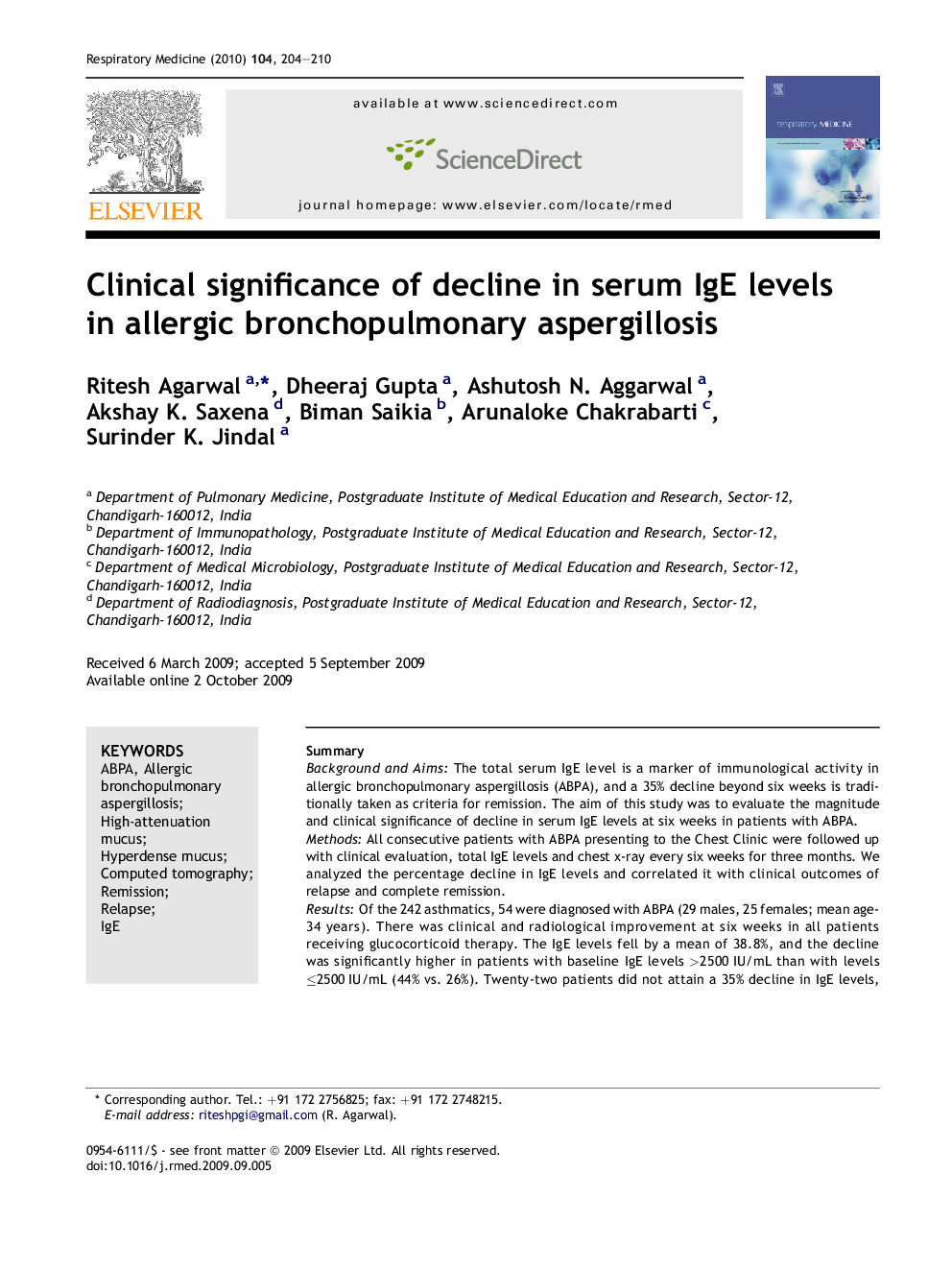| Article ID | Journal | Published Year | Pages | File Type |
|---|---|---|---|---|
| 4211215 | Respiratory Medicine | 2010 | 7 Pages |
SummaryBackground and AimsThe total serum IgE level is a marker of immunological activity in allergic bronchopulmonary aspergillosis (ABPA), and a 35% decline beyond six weeks is traditionally taken as criteria for remission. The aim of this study was to evaluate the magnitude and clinical significance of decline in serum IgE levels at six weeks in patients with ABPA.MethodsAll consecutive patients with ABPA presenting to the Chest Clinic were followed up with clinical evaluation, total IgE levels and chest x-ray every six weeks for three months. We analyzed the percentage decline in IgE levels and correlated it with clinical outcomes of relapse and complete remission.ResultsOf the 242 asthmatics, 54 were diagnosed with ABPA (29 males, 25 females; mean age-34 years). There was clinical and radiological improvement at six weeks in all patients receiving glucocorticoid therapy. The IgE levels fell by a mean of 38.8%, and the decline was significantly higher in patients with baseline IgE levels >2500 IU/mL than with levels ≤2500 IU/mL (44% vs. 26%). Twenty-two patients did not attain a 35% decline in IgE levels, and this number was significantly higher in patients with IgE levels <2500 IU/mL. On multivariate analysis, the decline in IgE levels at six weeks did not predict clinical outcomes.ConclusionsA 35% decline in serum IgE levels at six weeks is not seen in all patients with ABPA, and the decline is slower in patients with baseline IgE levels <2500 IU/mL. The quantum decline in serum IgE levels does not predict clinical outcomes.
